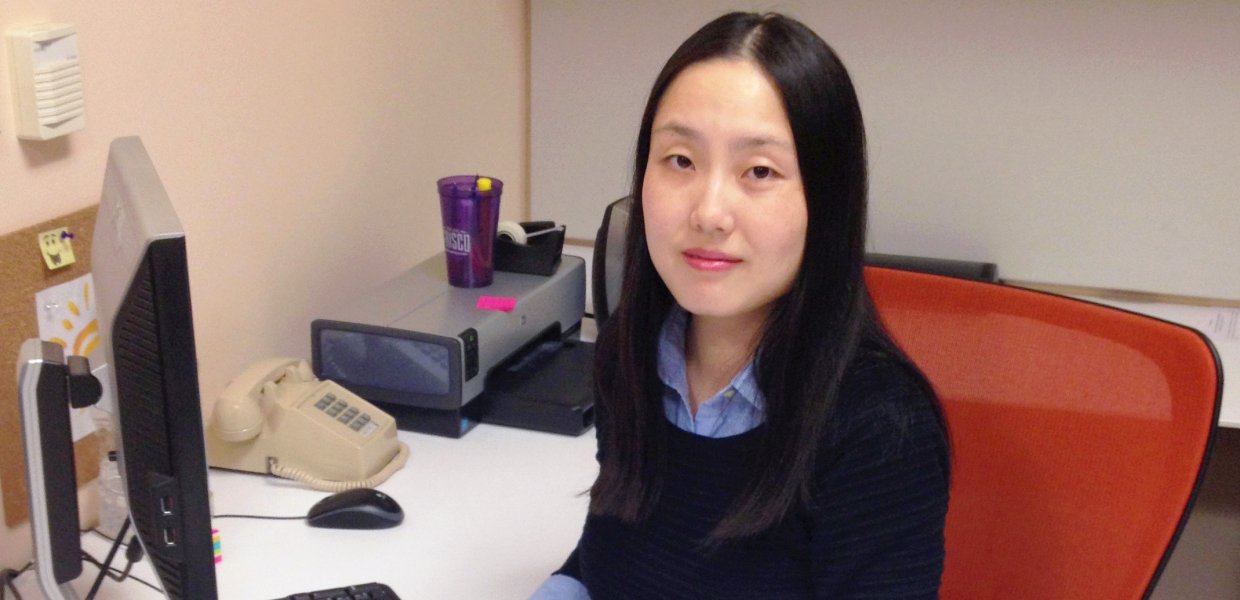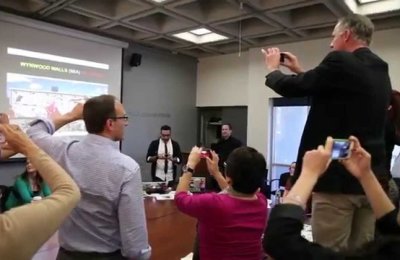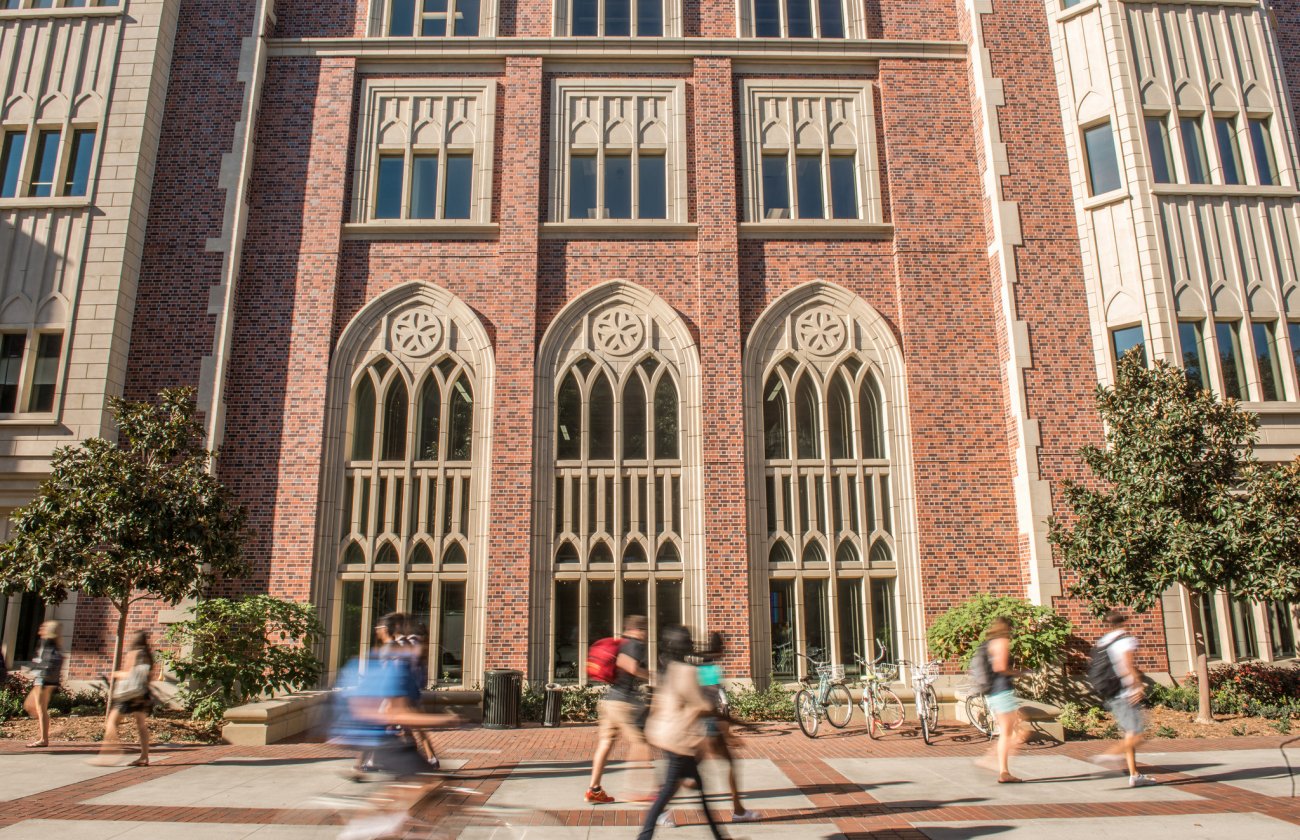USC Annenberg Ph.D. students are intellectuals who seek to create and design innovative and theory-driven work. With the help of experts university-wide, they have been able to organize dissertations on notable topics. "Discoveries" is a story series highlighting their research.
For the past five years Jinghui Hou, a doctorate student at USC Annenberg, has been interested in researching the impact of communication technologies. In that time, she’s thought about how the effects and usages of technology can influence social behaviors. Those thoughts lingered in Hou’s mind until they eventually shaped her dissertation topic titled, “Leverage Social Influence Bias to Design Online Crowdsourcing and Network Platforms for Healthy Eating: A Field Experiment.” Hou believes that technology and information can be used to create a better world through social relevance and social behavior. Hou is exploring how technology-based environments have an impactful role in shaping social ideas and decision-making. She’s concentrated her topic to healthy eating habits and is trying to see if designing effective technologies will sway people to make healthier eating decisions. To test her theory, Hou has developed a food ordering website.* The hope is that the technology will persuade people to make better choices when it comes to eating.
“It’s a dynamic website,” Hou said. “Participants can see other participant food choices and order quantity. They will use other people's choices and decision making as reference points.”
It can most readily be compared to a simpler version of GrubHub, a food delivery website. Her website allows participants to order both healthy and unhealthy snacks. And while the website doesn’t necessarily suggest healthy food choices for its participants, it does alert the users on how much food intake they are taking. Subsequently, users will take that information and, ideally, make sounder choices. She added that most people have a tendency to seek information about the types of things they should do — or in this case eat. For that reason she’s taken note on what people have ordered on her website and made that information visible to its users. Professor Margaret McLaughlin, who is on Hou’s advisory board, explained that the website tests the idea of social influence by giving users, in a sense, a hint about choosing the healthier option. “She has created a ‘social buying’ platform and is looking at how different types of web design can influence choice behavior,” McLaughlin said. “For example, creating a drop down menu of consumer choices and making the ‘default’ choice the healthiest or most sensible one is a form of behavioral ‘nudging.’” McLaughlin added that after a few trials, Hou will see whether different types of behavioral nudges will be effective in leading people to the best food choice. Part of Hou’s motivation for her focus was based on the obesity rate in the United States and in other parts of the world. The website has assisted Hou in keeping track of the eating choices her participants have made, especially because keeping track of a real life environment is harder to manipulate, Hou said. People might choose to eat less based on whom they eat with, Hou added. “There are a lot of studies that show that social influence has a huge effect on how much food people eat and what they eat,” Hou said. “For example if you eat with the opposite sex, you are more likely to eat less than you would if you were by yourself. Sometimes there’s that pressure of making a good impression.” More data needs to be collected for Hou’s project before completing it in the next couple of months. She admits that one of the challenges she’s faced while working on her dissertation was creating the website itself. Hou explained that she had no prior experience with website developing or programing.
"It was difficult at first but I want to do high quality research, which requires me to know something about website developing,” Hou said. She credits the faculty on her committee board, which in addition to Professor McLaughlin includes Peter Monge, Professor of Communication and Director of the Annenberg Doctoral Program, and Wendy Wood, Provost Professor of Psychology and business. Hou explained that their help and encouragement has been instrumental for her project. “Jinghui is supported by an outstanding committee who bring their considerable expertise to her dissertation committee, alerting her to new developments and new ways of thinking as she planned her research design,” McLaughlin said. Last May, Hou received the Oakley Fellowship — a yearlong fellowship that has financed some of her research expenses. The fellowship also encouraged Hou, especially when she was considering steering her topic in a slight different direction. “When I got the fellowship I knew that I would continue with the same plan,” Hou said. “It’s a big encouragement to get the fellowship because it showed the merit of my research.” While the hope is that the website will lead to better food choices, that’s just the beginning. In the larger scheme of things, Hou hopes that people will take her study and begin to think about how communication technologies can influence social conduct for the better.






